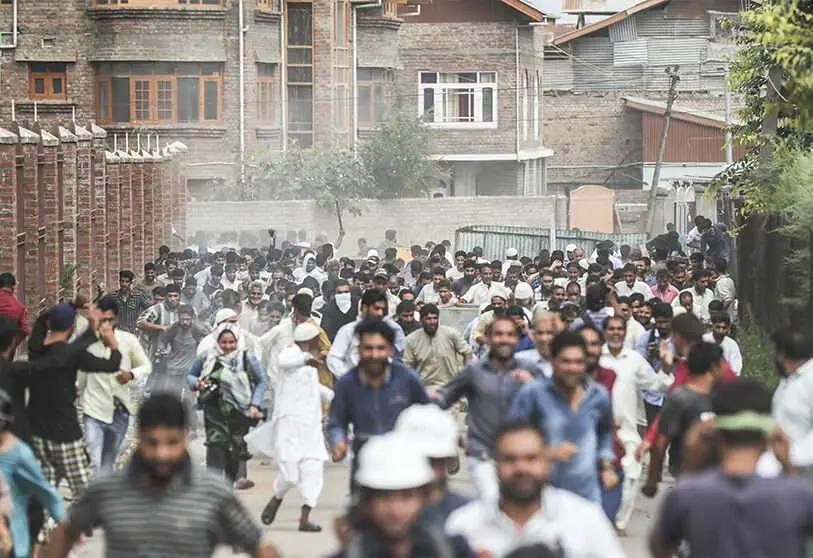Kidney for sale: the economic blow of two years of confinement

In August 2019, the Indian government suddenly withdrew the semi-autonomy from Indian Kashmir and, to avoid protests, imposed strict confinement for months, followed by restrictions due to the pandemic: a blow to the economy that has led some to even put their kidneys up for sale.
"I have lost everything and have to pay over 9 million rupees (about $120,000) in debt. If someone needs a kidney transplant, I'm ready to sell one of mine," said an ad published this month in the local newspaper Kashmir Reader.
Behind the ad is 26-year-old entrepreneur Sabzar Khan, who early last year decided to expand his construction business in the town of Qazigund, the gateway to the Kashmir Valley, encouraged by the good results.
But after obtaining the necessary funds from a bank and local lenders, on 5 August 2019 the Indian government removed the semi-autonomy from this region of Muslim majority in dispute with Pakistan and with a strong independence movement.
Fearing a forceful response from insurgent groups or general protests from the population, New Delhi then imposed a strict blockade for months, limiting movements, with strict curfews and the cutting off of communications.
On 4 March, after nearly seven months, Indian Kashmir finally regained full access to the internet, but only 15 days later the authorities again blocked the region after detecting the first cases of coronavirus, a situation that was to be extended to the whole country the following week.
Khan lives in a mud house almost a hundred kilometres south of Srinagar, the main Kashmiri city, where not long ago he dreamed of a prosperous business. "First came the political and military blockade. Then another blockade due to COVID-19. All these months the business was closed," laments the young entrepreneur.
His mother, 65, and his wife, 20, also decided to put his kidneys up for sale so that they could raise "as much money as possible" to help him pay back the loans after he had already sold all the machinery and what was left of the business.
Indian law does not allow financial transactions in kidney transplants, and both the donor and the recipient could be imprisoned for illegal trade in organs. "If it is illegal, then let the government come to my rescue," Khan said. The situation is so desperate that now his disabled father "goes from house to house collecting groceries and money to feed the family," explains his neighbour Bashir Ganai.
But this is not a unique case. Indian Kashmir trade associations estimate that in the 17 months since the first confinement, businesses in the region lost some $7 billion, while some 500,000 people were left unemployed. "It will be years before the economy of Kashmir returns to normal," predicts Aijaz Shahdar, a member of the business lobby Kashmir Trade Alliance (KTA).
Technology entrepreneur Mufti Salman is also having a hard time since he quit his lucrative job in the southern city of Bangalore, considered India's Silicon Valley, and decided to return to his native Kashmir. Salman invested his savings in establishing a business process management company in Srinagar. "Everything was ready. It was a project with the potential to generate 400 jobs initially and with an investment of about 600,000 rupees (about US$8,000)," he explains.
But two months later the first blockade in August occurred and "everything stopped in its tracks", just as they had started to hire the first employees. After trying to revive the business, Salman has given up.
Others, like Shamshad Ali, who runs a shipping company, are on the edge. "I was and still am on the verge of closure. I can't be discouraged. I will keep going," says the 27-year-old, who, despite not making a profit, sees how in the last two months the situation has started to improve, although "it is far from normal".
In the midst of this situation, the Kashmir Chamber of Commerce and Industry (KCCI) has been trying to encourage young entrepreneurs to keep their businesses afloat. "It is better to keep it on life support than to let it die. We know it is difficult," acknowledges KCCI President Sheikh Ashiq.








